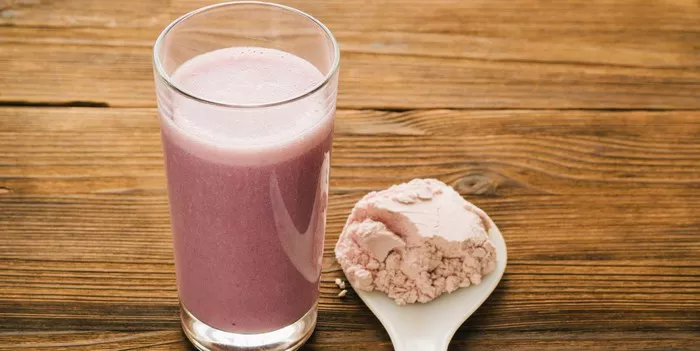Embarking on a journey to build muscle requires a comprehensive understanding of the role that protein plays in the process. Protein is the cornerstone of muscle development, providing the essential building blocks necessary for repair and growth. In this in-depth exploration, we unravel the mysteries of protein and muscle building, delving into the recommended grams of protein per kilogram of body weight to maximize gains and sculpt a stronger physique.
Protein’s Role in Muscle Building
Before delving into the specifics of protein intake, it’s crucial to grasp the fundamental role that protein plays in the muscle-building process. Muscles are composed of protein, and the body requires a sufficient supply of amino acids – the building blocks of protein – to repair and synthesize new muscle tissue.
Engaging in resistance training or strength-based activities induces micro-tears in muscle fibers. The process of repairing these micro-tears and building additional muscle tissue is known as muscle protein synthesis (MPS). Protein consumption, particularly rich in essential amino acids, is integral to supporting MPS and fostering an environment conducive to muscle growth.
Determining Protein Needs for Muscle Building
The optimal grams of protein per kilogram of body weight for muscle building can vary among individuals based on several factors. Factors such as age, gender, training intensity, overall health, and fitness goals all contribute to the personalized protein requirements for effective muscle development.
A commonly referenced guideline for protein intake suggests a range of 1.6 to 2.2 grams of protein per kilogram of body weight for those actively engaged in resistance training or seeking muscle hypertrophy. However, individual responses to protein intake can vary, and fine-tuning the amount based on personal experience and progress is essential.
Protein Timing for Muscle Building
In addition to the total daily protein intake, the timing of protein consumption plays a role in optimizing muscle-building potential. The concept of an “anabolic window” refers to the period immediately following a workout when the body is particularly receptive to nutrient uptake, including protein.
Consuming a protein-rich meal or supplement within the post-exercise window is believed to enhance muscle protein synthesis and expedite recovery. While the anabolic window was once thought to be a narrow timeframe, recent research suggests that the overall daily protein intake is of greater importance than immediate post-exercise consumption. Nevertheless, distributing protein intake across meals, with an emphasis on post-exercise protein, remains a strategic approach for muscle builders.
Calculating Protein Intake
Calculating the grams of protein per kilogram of body weight involves a practical and individualized approach. Here’s a step-by-step guide to help determine the optimal protein intake for muscle building:
Set Protein Goals: Establish a target daily protein intake based on the recommended range of 1.6 to 2.2 grams per kilogram of body weight. This range provides a starting point for customization based on individual factors.
Assess Training Intensity: Consider the intensity and frequency of resistance training or strength-based activities. Individuals engaging in more intense and frequent training may lean toward the higher end of the recommended protein range.
Calculate Total Daily Protein: Multiply your body weight in kilograms by the chosen protein intake range. For example, a person weighing 70 kilograms aiming for 1.8 grams of protein per kilogram would calculate 70 kg × 1.8 g/kg = 126 grams of protein per day.
Distribute Protein Across Meals: Aim for a balanced distribution of protein across meals and snacks. Spreading protein intake throughout the day ensures a steady supply of amino acids for muscle maintenance and growth.
Consider Personal Response: Monitor personal responses to protein intake, including changes in muscle mass, strength gains, and overall well-being. Adjust protein intake based on individual progress and goals.
High-Quality Protein Sources for Muscle Building
Meeting protein goals for muscle building involves selecting high-quality protein sources that provide essential amino acids and additional nutrients. Here are some examples of nutrient-dense protein sources suitable for those aiming to build muscle:
Lean Meats: Chicken breast, turkey, lean cuts of beef, pork loin, and veal.
Fish: Salmon, tuna, cod, tilapia, and other fatty and lean fish varieties.
Eggs: A complete protein source rich in essential amino acids.
Dairy: Greek yogurt, cottage cheese, and low-fat milk.
Plant-Based Proteins: Lentils, chickpeas, black beans, tofu, tempeh, and edamame.
Nuts and Seeds: Almonds, peanuts, chia seeds, and sunflower seeds.
Quinoa: A protein-rich grain that also provides essential amino acids.
Protein Supplements: Whey protein, casein protein, and plant-based protein supplements can complement dietary protein intake, especially for those with increased protein requirements.
Choosing a variety of protein sources ensures a diverse array of amino acids, contributing to overall muscle health and function. Incorporating a mix of animal and plant-based proteins allows individuals to customize their diet based on personal preferences and dietary restrictions.
Protein Synthesis
Understanding the dynamics of protein synthesis is pivotal in the quest to maximize muscle gains. Protein synthesis involves the creation of new muscle proteins, and optimizing this process requires a strategic approach to protein intake.
Protein Timing: As mentioned earlier, post-exercise protein consumption is a key factor in supporting muscle protein synthesis. Consuming a protein-rich meal or supplement within the anabolic window helps initiate the repair and growth processes.
Essential Amino Acids: Essential amino acids, which the body cannot produce on its own, play a central role in muscle protein synthesis. Ensuring an adequate supply of essential amino acids, either through dietary sources or supplements, is crucial for maximizing the anabolic response to protein intake.
Leucine Content: Leucine, one of the essential amino acids, is particularly influential in triggering muscle protein synthesis. Protein sources with higher leucine content, such as whey protein and animal-based proteins, can be strategically incorporated to enhance muscle-building potential.
Balanced Intake: While post-exercise protein intake is crucial, maintaining a consistent and balanced distribution of protein across meals supports a continuous supply of amino acids for muscle protein synthesis throughout the day.
Adaptations Based on Training Goals
Individuals pursuing various training goals, whether it’s hypertrophy, strength gains, or overall muscle maintenance, may need to adapt their protein intake accordingly. Tailoring protein intake based on specific training goals ensures that nutritional strategies align with the desired outcomes.
Hypertrophy Goals: Those aiming for muscle hypertrophy, or increased muscle size, may benefit from slightly higher protein intake within the recommended range. This accounts for the additional protein requirements associated with the muscle-building process.
Strength Training: Individuals focusing on strength gains may prioritize protein intake to support muscle repair and recovery. Adequate protein is essential for minimizing muscle soreness and facilitating the adaptations necessary for strength development.
Endurance Training: While endurance athletes may have lower protein requirements than those engaged in resistance training, maintaining an adequate protein intake is still crucial for muscle repair and overall performance.
Individual Responses: Monitoring individual responses to training and adjusting protein intake based on progress and feedback is key. Some individuals may find they respond better to higher protein intake, while others may achieve their goals with a slightly lower intake within the recommended range.
Potential Risks of Excessive Protein Intake
While protein is essential for muscle building, excessive protein intake may pose potential risks. Consuming protein beyond the body’s needs may lead to increased calorie intake, potentially contributing to weight gain. Moreover, excessive protein intake from certain sources, such as red and processed meats, may be associated with health risks, including cardiovascular issues.
Maintaining a balanced approach to protein intake, opting for a variety of nutrient-dense sources, and staying within the recommended range help mitigate potential risks associated with excessive protein consumption. Consulting with a healthcare professional or nutrition expert can provide personalized guidance based on individual health considerations.
Conclusion
In conclusion, the intricate dance between protein and muscle building requires a thoughtful and strategic approach. Determining the optimal grams of protein per kilogram of body weight involves considering individual factors, training goals, and personal responses to protein intake.
By setting protein goals within the recommended range, distributing protein across meals, incorporating high-quality protein sources, and adapting intake based on training goals, individuals can craft a personalized protein strategy for muscle building success. Balancing the anabolic potential of post-exercise protein intake with the continuous supply of amino acids throughout the day creates an environment conducive to muscle growth and repair.
[inline_related_posts title=”You Might Be Interested In” title_align=”left” style=”list” number=”6″ align=”none” ids=”3284,3281,3220″ by=”categories” orderby=”rand” order=”DESC” hide_thumb=”no” thumb_right=”no” views=”no” date=”yes” grid_columns=”2″ post_type=”” tax=””]





























